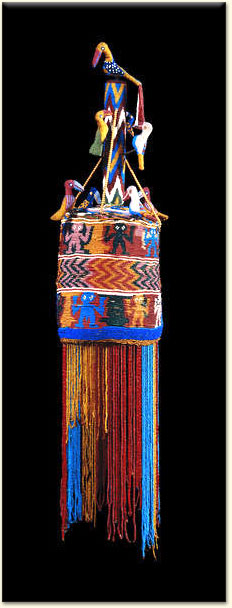I was shocked by how this story worked out.
1) Jesus the Magician? Archaeological Find Unlikely As Earliest Reference to Jesus Christ
http://ezinearticles.com/?Jesus-the-Magician?-Archaeological-Find-Unlikely-As-Earliest-Reference-to-Jesus-Christ&id=1593610
A bowl newly discovered in Alexandria, Egypt, and dated to the period from the late second century BCE to the early first century CE bears an engraving that may be the world's earliest known reference to Jesus Christ. The engraving reads dia chrstou ogoistais, translated by the excavation team as "through Christ the magician." According to French marine archaeologist Franck Goddio, co-founder of the Oxford Center of Maritime Archaeology, and Egyptologist David Fabre, the phrase could very well be a reference to Jesus Christ, since he was one known as a primary exponent of white magic.I had read about the cup in another place, and being familiar with some of the literature of Jesus as a magician, right along with Simon Magus, I was fascinated.
The team found the bowl during their underwater excavation of the ancient harbor of Alexandria. They speculate that a first-century magus may have used the bowl to tell fortunes. They note that the bowl is very similar to one depicted on two early Egyptian statuettes that are thought to show a soothsaying ritual. Ancient soothsaying manuals describe a technique in which the fortune teller poured oil into water and then entered an ecstatic state while studying the whirling mix. In the hallucinatory state, the fortune-teller hoped to meet mystical beings that could field questions about the future. The inscription, the archaeologists theorize, may have served to legitimize the soothsaying by invoking the name of Christ, acknowledged to be a wonder-worker.
[...]
How weighty is the evidence?
o Is it "Christ" or "Good"? - The archaeologists may have mistaken one Greek word for another in their interpretation. A glance at the photograph of the cup reveals a letter between the rho ("P") and the sigma ("C"). The letter, though poorly formed, seems unmistakably the letter eta ("H"). If this identification is correct, then the lexical form of the Greek word inscribed is not christos, but chrestos, meaning "kind, loving, good, merciful."
The prepositional phrase, then, probably indicates that the bowl was a gift, given "through kindness" from some benefactor. It seems obvious that chrestou is much more likely than christou for the engraved word. Rather than referring to the power of Christ, the word chrestou might be a reference to the person who gave the cup as a gift-as we might write on a gift "from Donald with best wishes." This explanation seems as plausible as its alternative is unlikely.
I did not read about the evidence, however, at first, nor did I read the inscription myself.
2)
I ended up at http://gwynraven.livejournal.com/1063796.html
who seems to be a young lady who does not even read Greek, but I needed her to point out that there is a Greek letter "Eta" in the phrase dia chrstou, so the proper reading is dia chrēstou.
This is immediately obvious, and the letter actually does not seem "poorly formed". I tried scratching an "eta" onto some sheetrock, and one cannot make the rounded edges; it comes out exactly like that upon the cup.
There is absolutely no basis for believing this refers to Jesus Christ based upon the inscription.
It can only be done if one totally ignores the "eta".



















No comments:
Post a Comment